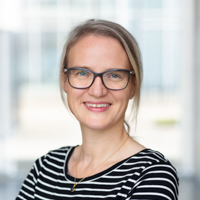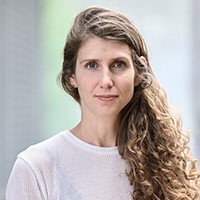Language, teaching and learning
At CIP, we conduct research into language, teaching and learning in order to be able to offer discipline-specific language training across the University of Copenhagen. Much of this research looks at Danish and English, but it also includes the many other languages that play a role in an international learning environment.
Research areas
Much of CIP’s research in this area focuses on language as a subject-based discourse competence and examines how language teaching focusing on different languages and skills can best be organised in relation to specific disciplines, students and lecturers. In addition, we look at how language and university pedagogy interact (see e.g. Thøgersen et al. 2014).
The research covers, for example, studies into exchange students’ written English texts, critical reading skills in English for bachelor students studying medicine, and written communication skills in Danish on the pharmacy degree programme.
CIP’s language courses also draw on knowledge gained from studies that provide insight into the learning processes, linguistic practices and language use that characterise different academic environments and disciplines at the university.
Writing as a tool to enhance clear discipline-specific communication at the Department of Pharmacy
In continuation of her Master's thesis (Laursen, 2013), Katja Å. Laursen studied the use of writing as a tool to make explicit academic and communicative practices for students at the Department of Pharmacy. A needs analysis showed that many students experienced difficulties in understanding and performing the written genre forms used for examinations, partly because they were not explicitly covered in the teaching. This led to a teaching component based on the needs analysis being integrated into the course, aimed at both teachers and students with the purpose of increasing linguistic awareness and adjusting existing practices concerning written exam genres.
Re-contextualising academic writing in English: case studies from international students in Denmark
In her PhD thesis (2013), Sanne Larsen studied how six exchange students at the University of Copenhagen coped with having to write academic texts in English partly for a language course in academic English and partly for their content courses. The study focused on the challenges faced by students in re-contextualising previous experiences of academic English and academic writing in English and other languages. The study concluded that while a lack of skills in academic English was perceived as a barrier by some students, it did not present a insurmountable problem because of the many different norms for academic English that were in play.
Evaluation of a pilot scheme introducing Danish as a second language on HF single-subject courses
In the period 2018-2019, CIP conducted an evaluation of a new pilot scheme that introduced a course in Danish as a second language in HF (higher preparatory exam) single-subject courses. The evaluation was carried out in collaboration with Copenhagen University College on behalf of the Danish Agency for Education and Quality under the Ministry of Education. The evaluation looked at admission tests, course content and organisation, and exams, as well as the potential educational benefits of the pilot course. Danish as a second language was made a permanent component of the HF courses in 2019 when the results from the evaluation were included in the political basis for the decision.
Models for teaching languages as a supplementary skill
In this project, financed by the National Centre for Foreign Languages, work is being carried out in the period March 2020 to October 2022 to look at teaching languages as a supplementary skill in close collaboration with ten partners representing a broad spectrum of higher education institutions. An initial concept and needs analysis distributed among the project partners form the basis for the development of both specific courses and generic models for teaching languages as a supplementary skill.
Research into language, teaching and learning falls under applied linguistics and uses a wide range of different research methods – both qualitative and quantitative. Detailed insight into the learning processes, linguistic practices and language use that characterise specific learning environments is often obtained through ethnographic studies or case studies, while more teaching and learning focused studies can take the form of intervention studies, experimental studies and analyses of the curriculum.
CIP's research in the fields of language, teaching and learning is often carried out together with content lecturers at the University of Copenhagen in the form of long-term joint projects. This applies, for example, to the project "Writing as a tool to enhance clear discipline-specific communication at the Department of Pharmacy" as well as to a number of development projects carried out under the University's Language Strategy initiative.
CIP’s researchers also play a key role in the organisation and teaching of the Master in Foreign Language Pedagogy programme and runs joint projects with the Consortium for Language and Teaching. Under the auspices of the Consortium, CIP conducts research focusing on language acquisition and teaching in relation to language programmes in primary and lower secondary schools. PhD projects under the supervision of CIP's researchers have focused, among other things, on the acquisition of English among pupils from other ethnic backgrounds and multilingual teaching.
CIP welcomes collaboration projects with all units from the University of Copenhagen – from faculties to individual research groups – on all issues related to language, teaching and learning.
CIP’s researchers carry out consultancy work focusing on teaching and learning in other contexts than the University of Copenhagen. One example is an evaluation of a new pilot scheme offering a course in Danish as a second language on HF single-subject courses carried out for the Danish Agency for Education and Quality, under the Ministry of Education.
Holmen, A. (2018). Additive Language Pedagogy: Aligning a Learner-Centered Approach with Student Diversity. International Journal of Bias, Identity and Diversities in Education, 3, 1-9.
Nissen, C. F. R. (2019). Blind spots of internationalization of Higher Education: Lived experiences of students in three versions of the international classroom. PhD thesis, Department of Nordic Studies and Linguistics: University of Copenhagen.
Kling, J., Larsen, S. & Thomsen, S. F. (2017). The Need for Focused Literacy Training in the Medical School Curriculum: A Cross-Sectional Study of Undergraduate Students. Education Research International. https://doi.org/10.1155/2017/7273824.
Larsen, S. & Jensen, F. (2020). Acknowledging the Role of Language in EMI: Experiences from a Pilot Project Intervention at UCPH. In S. Dimova, & J. Kling (Eds.), Integrating content and language in multilingual universities. Springer Nature.
Laursen, K. Å. (2016). Skrivehandlinger som redskab til klar faglig formidling på PharmaSchool. Sprogforum, 63, 50-56.
Thøgersen, Jacob m.fl. (2014). Engelsk som undervisningssprog på nordiske universiteter. Hvordan gør man? I Gregersen, F. (red.). Hvor parallelt. Om flerspråkighet på Nordens Universitet. TemaNord 2014, 53, 59-116


